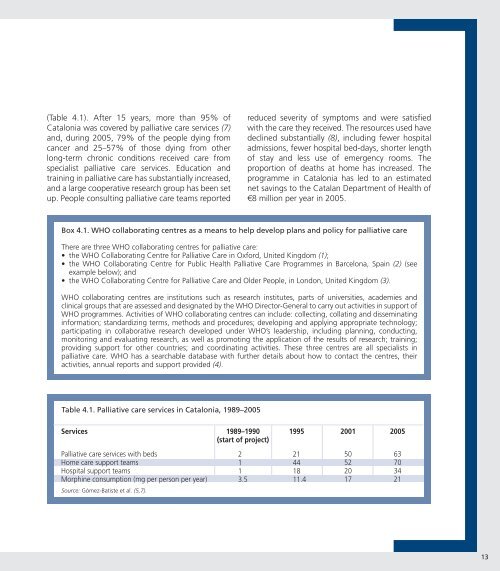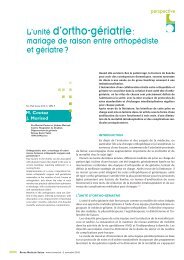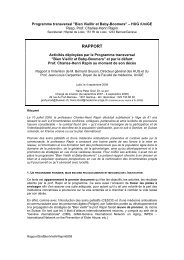Palliative care for older people - World Health Organization ...
Palliative care for older people - World Health Organization ...
Palliative care for older people - World Health Organization ...
You also want an ePaper? Increase the reach of your titles
YUMPU automatically turns print PDFs into web optimized ePapers that Google loves.
(Table 4.1). After 15 years, more than 95% ofCatalonia was covered by palliative <strong>care</strong> services (7)and, during 2005, 79% of the <strong>people</strong> dying fromcancer and 25–57% of those dying from otherlong-term chronic conditions received <strong>care</strong> fromspecialist palliative <strong>care</strong> services. Education andtraining in palliative <strong>care</strong> has substantially increased,and a large cooperative research group has been setup. People consulting palliative <strong>care</strong> teams reportedreduced severity of symptoms and were satisfiedwith the <strong>care</strong> they received. The resources used havedeclined substantially (8), including fewer hospitaladmissions, fewer hospital bed-days, shorter lengthof stay and less use of emergency rooms. Theproportion of deaths at home has increased. Theprogramme in Catalonia has led to an estimatednet savings to the Catalan Department of <strong>Health</strong> of€8 million per year in 2005.Box 4.1. WHO collaborating centres as a means to help develop plans and policy <strong>for</strong> palliative <strong>care</strong>There are three WHO collaborating centres <strong>for</strong> palliative <strong>care</strong>:• the WHO Collaborating Centre <strong>for</strong> <strong>Palliative</strong> Care in Ox<strong>for</strong>d, United Kingdom (1);• the WHO Collaborating Centre <strong>for</strong> Public <strong>Health</strong> <strong>Palliative</strong> Care Programmes in Barcelona, Spain (2) (seeexample below); and• the WHO Collaborating Centre <strong>for</strong> <strong>Palliative</strong> Care and Older People, in London, United Kingdom (3).WHO collaborating centres are institutions such as research institutes, parts of universities, academies andclinical groups that are assessed and designated by the WHO Director-General to carry out activities in support ofWHO programmes. Activities of WHO collaborating centres can include: collecting, collating and disseminatingin<strong>for</strong>mation; standardizing terms, methods and procedures; developing and applying appropriate technology;participating in collaborative research developed under WHO’s leadership, including planning, conducting,monitoring and evaluating research, as well as promoting the application of the results of research; training;providing support <strong>for</strong> other countries; and coordinating activities. These three centres are all specialists inpalliative <strong>care</strong>. WHO has a searchable database with further details about how to contact the centres, theiractivities, annual reports and support provided (4).Table 4.1. <strong>Palliative</strong> <strong>care</strong> services in Catalonia, 1989–2005Services1989–1990(start of project)199520012005<strong>Palliative</strong> <strong>care</strong> services with bedsHome <strong>care</strong> support teamsHospital support teamsMorphine consumption (mg per person per year)2113.521441811.45052201763703421Source: Gómez-Batiste et al. (5,7).13
















